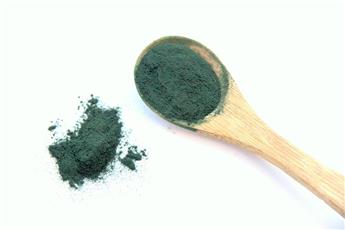Sport & Spirulina: The benefits of spirulina for athletes
Categories :
Advice
Called "super food" for its exceptional composition, the benefits of spirulina have been especially noticed in sports because it is used by many professionals. Meltonic lets you discover this food supplement so special. Enjoy your reading!

Spirulina, also called blue algae or spirulina platensis, has many benefits. It was used for a long time by the Aztec people of Mexico and was used for its gustatory properties but also recognized for its beneficial properties during intense activities such as sports.
This blue-green cyanobacteria in the shape of a disc has exceptional virtues, which is why it is qualified by UNESCO as "the ideal and most complete food of tomorrow" and "best food for humanity in the 21st century" by the WHO.
The benefits of spirulina were officially recognized in 1967 due to its exceptionally high protein content (60-70% of its dry weight). The virtues of spirulina are also noticeable in its mineral composition. Indeed, the blue algae rich in trace elements also contains vitamins B, C, D, and E. It is a rich source of potassium but also of calcium and magnesium.
Spirulina was once used in daily life by pregnant women, in traditional dishes for its taste properties and also in sports by the ancient Aztec athletes.
To enjoy the benefits of spirulina, it is advisable to consume it every day for a more visible effectiveness. A program of 2 to 3 months, consumed in the form of capsules is beneficial to take advantage of its natural virtues.
For a daily consumption, spirulina can be incorporated in your dishes, but also used as seasoning or integrated and mixed in your drinks (water, fruit/vegetable juices, smoothies, etc.).
It is advised not to exceed the recommended dose of 10 grams per day in order not to suffer from the side effects of spirulina.

The benefits of spirulina are numerous and this natural ingredient is used in sports for many reasons: for performance, recovery and to lose body fat.
In endurance for example, the blue algae contributes to the improvement of the oxygenation of the muscles which will increase the capacity to maintain a certain level of intensity in time.
For recovery, it contributes, thanks to its composition rich in protein and amino acids, to the reduction of oxidative stress.
For the loss of fat mass, the virtues of spirulina are mainly noticed in its composition low in lipids and calories that helps to clean up the cardiovascular system and thus reduce blood pressure.
"The products, I use them in the morning with the various cures offered (royal jelly, spirulina, morning tonic ...) then, during my training and racing I use gels and bars that in addition to being good are very effective, no stomach problems and immediate effectiveness, "Rudy Bonnet, Winner of the GRP 120 kms in St Lary (Pyrenees) 2017
So you have understood, the benefits of spirulina are numerous and it is recommended for sports.
